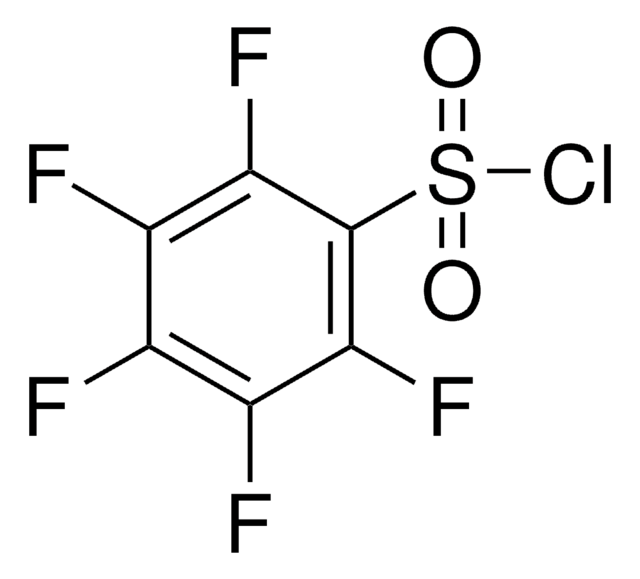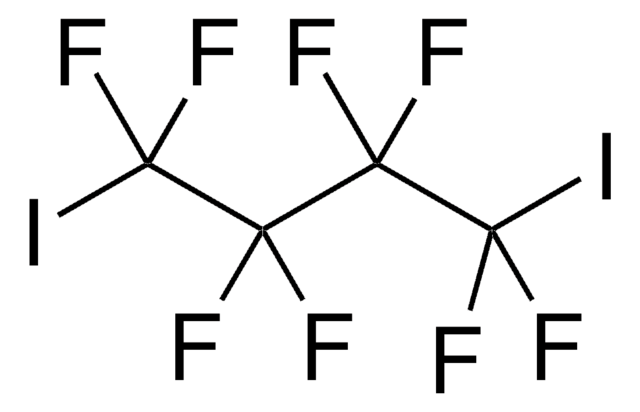All Photos(1)
About This Item
Empirical Formula (Hill Notation):
C4H8OS
CAS Number:
Molecular Weight:
104.17
EC Number:
MDL number:
UNSPSC Code:
12352100
PubChem Substance ID:
NACRES:
NA.22
Recommended Products
Quality Level
Assay
98%
form
liquid
refractive index
n20/D 1.5095 (lit.)
bp
147 °C/755 mmHg (lit.)
density
1.114 g/mL at 25 °C (lit.)
functional group
ether
thioether
SMILES string
C1CSCCO1
InChI
1S/C4H8OS/c1-3-6-4-2-5-1/h1-4H2
InChI key
JBYHSSAVUBIJMK-UHFFFAOYSA-N
Application
1,4-Thioxane (1,4-oxathiane) was used to study the growth and characterization of the vertically aligned zinc oxide (ZnO) nanowires.
Signal Word
Warning
Hazard Statements
Precautionary Statements
Hazard Classifications
Eye Irrit. 2 - Flam. Liq. 3 - Skin Irrit. 2 - STOT SE 3
Target Organs
Respiratory system
Storage Class Code
3 - Flammable liquids
WGK
WGK 2
Flash Point(F)
107.6 °F - closed cup
Flash Point(C)
42 °C - closed cup
Personal Protective Equipment
dust mask type N95 (US), Eyeshields, Gloves
Choose from one of the most recent versions:
Already Own This Product?
Find documentation for the products that you have recently purchased in the Document Library.
Customers Also Viewed
M W Ellzy et al.
Spectrochimica acta. Part A, Molecular and biomolecular spectroscopy, 57(12), 2417-2432 (2002-01-05)
We present a detailed analysis of the structure and infrared spectra of 1,4-thioxane. The vibrational frequencies of the 1,4-thioxane molecule were analyzed using standard quantum chemical techniques. Frequencies were calculated at the MP2 and DFT levels of theory using the
Michał Czub et al.
Marine environmental research, 161, 105077-105077 (2020-08-28)
Sulphur mustard (HD) was the most widely produced chemical warfare agent (CWA) in the history of chemical warfare (CW). Simultaneously, the loads of HD account as by far the largest fraction of the sea-dumped CW. Nowadays its presence in the
Xin Zhang et al.
Environmental science & technology, 43(3), 610-615 (2009-02-28)
The long-term fate of chemical weapon debris disposed of in the ocean some 50 years ago, now sinking into marine sediments and leaking into the ocean environment, is poorly known. Direct evidence exists showing chemical weapon agents actively being released
S Hindley et al.
Journal of nanoscience and nanotechnology, 11(9), 8294-8301 (2011-11-22)
Vertically aligned zinc oxide (ZnO) nanowires (NWs) have been grown by liquid injection Metal Organic Chemical Vapour Deposition, using oxygen donor adducts of Me2Zn. The growth and characterisation of the nanowires grown using [Me2Zn(L)] where L = monodentate ethers, tetrahydrofuran
Heidi Lees et al.
Electrophoresis, 38(7), 1075-1082 (2017-01-04)
In this study, novel, fast, and simple methods based on RP-HPLC and MEKC with DAD are developed and validated for the qualitative and quantitative determination of five cyclic sulfur mustard (HD) degradation products (1,4-thioxane, 1,3-dithiolane, 1,4-dithiane, 1,2,5-trithiepane, and 1,4,5-oxadithiepane) in
Our team of scientists has experience in all areas of research including Life Science, Material Science, Chemical Synthesis, Chromatography, Analytical and many others.
Contact Technical Service















